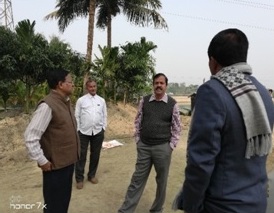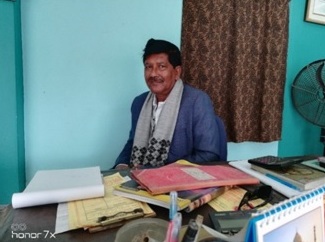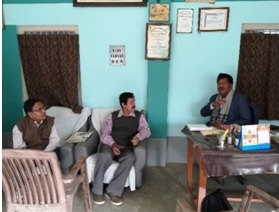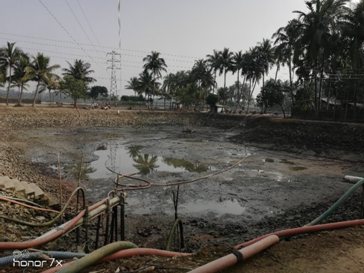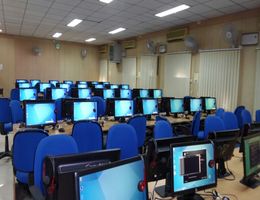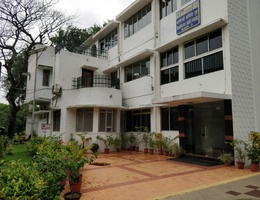Overview
Publications
Recruitment
Intranet
Glimpse of CIFRI
ICAR-Central Inland Fisheries Research Institute (CIFRI), Barrackpore is a premiere Institute undertaking research for the development of inland fisheries, which provides livelihood security to millions of fishers. Cage culture is one of the flagship programs of the Institute. The Institute has been instrumental in revolutionizing cage culture and as successfully percolated the cage culture technology throughout the country. In last 3-4 years, there has been a phenomenal increase in cage culture in reservoirs across different states of India. The ICAR-CIFRI interim estimate shows that more than 14000 cages have been installed all over India in different reservoirs of the country. Eastern regions comprising of Odisha and Jharkhand alone is contributing around 43% of total cages. The western region comprising Gujarat, Maharashtra and Goa contributes around 33% of the cages. Implementation of cage culture reservoirs have led to socioeconomic development and livelihood of fishers especially those displaced by construction of dams.
Pangasius (Pangasianodon hypophthalmus) is the most preferred species for cage culture in India. However, timely availability of quality fish seed is one of the major challenge faced by pangasius cage farmers leading to huge transportation mortality and disease outbreaks in cage farms. To address the issue, ICAR-CIFRI is in process of identifying progressive fish seed producers and suppliers for facilitating and motivating entrepreneurs to venture into quality seed production.
In this connection Director, ICAR-CIFRI, Dr. B. K. Das along a team of scientists visited Mr. Bablu Mujumdar’s farm in Sibdaspur, 24 Pgs (N) on 9 th January 2019. The objective of the visit was to interact with Mr. Mujumdar for establishing new avenues for participatory research and resource development in quality seed production and culture practices.
Mr. Bablu Mujumdar is one of the leading fish farmer in India. Through years of hard work, learning, experience on business trend, he has become a skilled fish farmer. He is also a successful fish seed producer. Various fisheries universities invite him to share his knowledge and experience in fish culture with the students. He is recipient of several awards from various fishery universities, Directorate of fisheries, Govt. of West Bengal and ICAR institutions like ICAR-CIFRI and ICAR- CIFA. He is also progressive in introducing new fish species in culture system. He is an established pangasius breeder. He also has successfully ventured in seed production of some other high value fish species like pabda (Ompok pabda). Being a successful fisheries entrepreneur, he is now willing to motivate and train the beginners in fish breeding and culture. He feels confident about Mr. Bablu Mujumdar Interacting with the Dr. B. K. Das, Mr Mujumdar expressed his concerns over African catfish, a legally banned exotic catfish species culture practices in and around West Bengal. In his view State fisheries departments should not extend subsidies on electricity, and other essential inputs like feed, fertilizer etc. to the farmers cultivating African catfish to discourage its farming. He also showed his keen interest in educating and providing training to fellow farmers on pangasius breeding and culture, purely in the interest of the sector. Dr. B. K. Das, Director, CIFRI witnessing the involvement and interest of progressive farmers like Mr. Mujumdar opined that progressive farmers like him could aid in developing aquaculture clusters in the PPP mode.
Mr. Mujumdar also feels that farmers and trainees must be given hands on training on various aspects of fish culture starting from broodstock raising, breeding and hatchery management, nursery and culture to transportation and marketing skills to help them become successful entrepreneurs. He emphasized on marketing of fish at appropriate time and at right size based on market demand. In his experience, it can enhance the profits significantly. He also emphasizes on the urgency of need based skill development programmes in inland fisheries and aquaculture for generating employment for the rural youths. He thrusted upon making the technology packages available with ICAR institutes and State fisheries department in provincial language and also expressed that more fish farmers/fishers would be sensitized and motivated if special days like National Fish farmers’ day, world Fisheries day, Wetland day etc. will be celebrated on farmers field and broadcasted through multimedia. The team had a close look on various activities going on his farm and discussed possibilities on future collaboration for various research and developmental activities.
